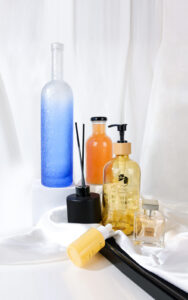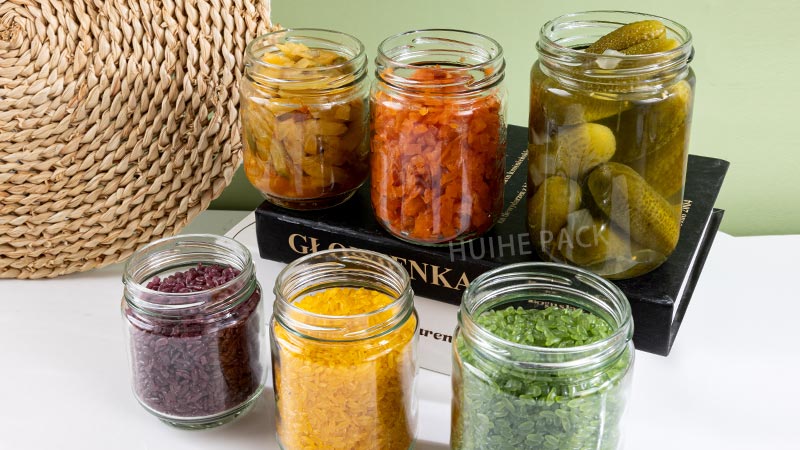
Canning is one of the best methods for preserving food for long periods. However, it is not only about using the right processes but also getting the correct storage containers.
But which types of canning jars are ideal for canning? In this guide, we discuss how to choose the correct jars, sizes, and ideal storage conditions.
Introduction to Canning
Favorite foods for canning include jams, vegetables, honey, meats, and pickles. The type of food often determines the type and size of jar to use. Not all jars you’ll find at the store are suitable for canning, as some break during the process.
What is Canning?
Canning is one of the most popular food preservation processes that has stood the test of time. It is a simple process that involves heating food containers, leading to the destruction of bacteria and anything that can make food go bad. Heat removes air from the jar, and cooling provides an air-tight seal.
That means you need jars that can withstand heat without breaking. While there are various containers you can use for canning, mason jars are more suitable.
Common Jar Types for Home Canning
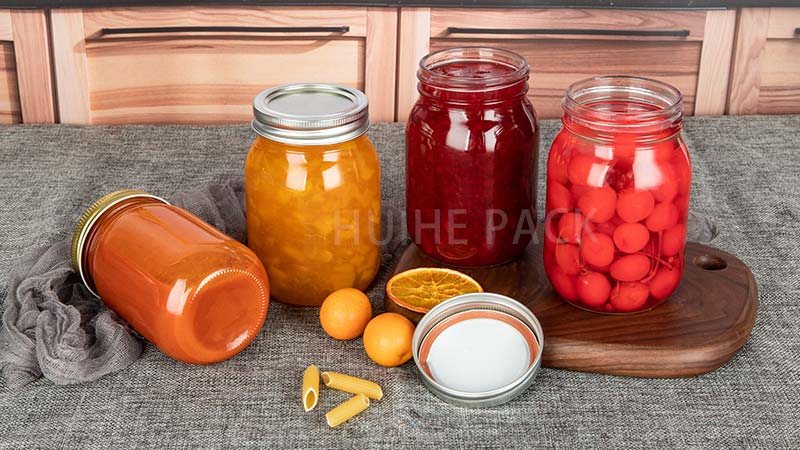
When shopping for accessories, you are likely to find many different canning jar sizes. Your choice of jars will most probably fall into these mason jar types.
Jar sizes | Recommended food types |
Half pint jars (8 oz) | Suitable for jams, jellies, and preserves. |
Pint (16 oz) | Use them for small quantities of fruit, vegetables, pickles, and meat canning. |
Quart-size jars (32 oz) | Ideal for vegetables, meat, soups, spaghetti sauce, and fruits. |
Half gallon (64 oz) | Recommended for storing highly acidic foods such as apple juice. |
Full gallon (128 oz) | Ideal for large-scale storage of cereals or grains. |
If unsure of the right jar size, you can check online for the canning jar sizes chart.
Why Mason Jars Are Popular
Mason jars are made from thick glass, do not break easily, and you can reuse the jars as many times as possible.
Mason jars are readily available in different shapes and sizes. They have several functions like decor, crafts, beverages, and food storage and preservation.
Materials and Construction
Standard mason jars are made from glass to protect food products and keep them fresh. They also come with two-piece metal lids or one-piece lids. During the canning process, the flat metal lid with a sealing compound in its inner bottom softens and seals tightly to the jar.
A natural vacuum, which keeps air and bacteria out, seals the jar after cooling. Lids are single-use, while you can reuse the screw band several times.
Types of Canning Jars
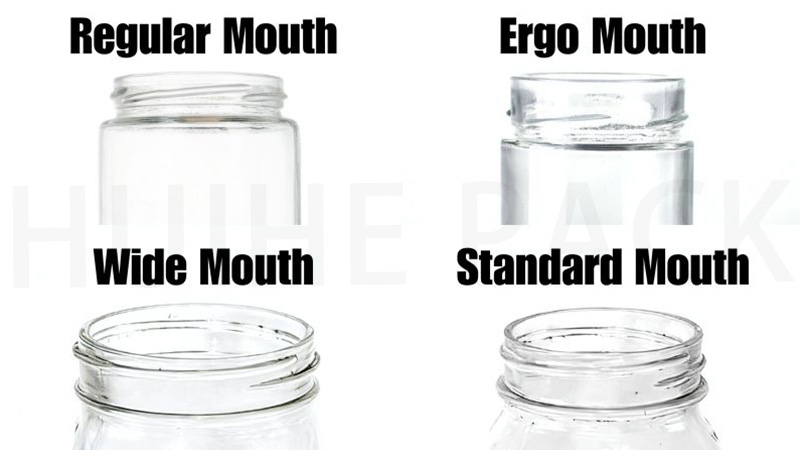
Jar Mouth Types
Canning jars primarily come in different mouth types, each designed for specific uses.
- Wide-Mouth Jars (3 inches) – These are easier to fill and remove air bubbles. Wide-mouth jars are ideal for canning big pieces of food like whole fruits, pickles, and large vegetables.
- Standard Mouth Jars (2.5–2.75 inches) – With a smaller opening, these jars are better suited for juices, sauces, jams, or smaller pieces of fruits and vegetables. They are also slightly more compact, which makes them easy to store.
- Regular Mouth Jars – Regular-mouth jars are the most common and widely available option. They are compatible with most traditional canning lids and accessories, making them a versatile choice for everyday home canning projects. Their narrower top helps hold foods like beans and carrots in place during the canning process.
- Ergo (High-Mouth) Jars – These jars feature a taller neck or specially threaded design that improves grip and pouring control. The ergonomic shape is convenient for both consumers and businesses, especially when jars are frequently opened and resealed. They also provide a more premium look, which can be appealing for gifting or retail display.
Canning Jar Brands and Pricing
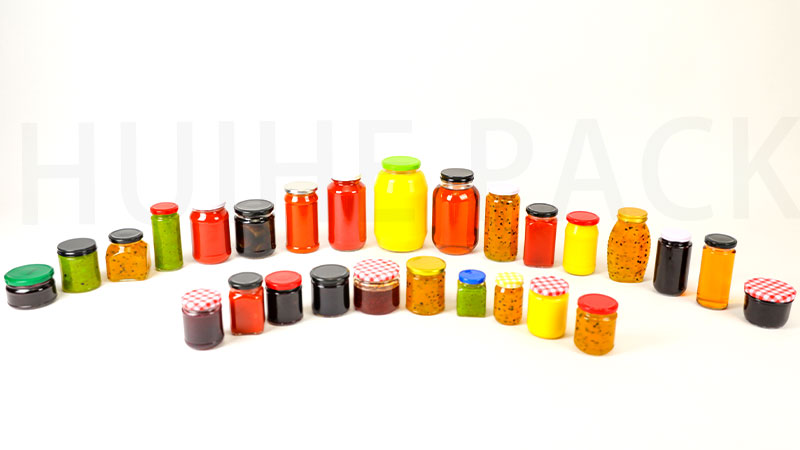
Top Brands
Ball is one of the most popular brands in making food storage canning jars. The brand offers a variety of premium mason jar sizes. Ball jars are made from thick glass, making them safer and more reliable. The jars are readily available in stores and online.
Mason jars are also popular, especially for people who want a more affordable option. Despite being cheaper, mason jars are strong enough for most canning processes. You can easily find their replacement lids and bands.
For businesses or distributors looking for large-scale supply, HUIHE provides a wide range of canning jars and mason jars manufactured with food-grade glass. Our jars are designed for both home use and commercial packaging, ensuring consistency, safety, and premium quality at wholesale volumes.
Buying Tips
Consider buying the new jars in bulk for the best deal. Most stores will offer the jars in dozens at a cheaper unit price when buying in bulk. You will also have plenty of available jars for your canning processes to avoid going to the store now and then.
Buy jars at the end of the canning season when most are on sale and keep them for later use. Local farm supply stores often have good deals.
If you are a business buyer, sourcing directly from a glass manufacturer like HUIHE can help reduce long-term costs. We support bulk orders with flexible customization options for jar size, mouth type, and packaging. Whether you need standard mason jars, regular canning jars, or specialized food glass containers, our production capacity ensures steady supply for your projects and markets.
Jar Preparation
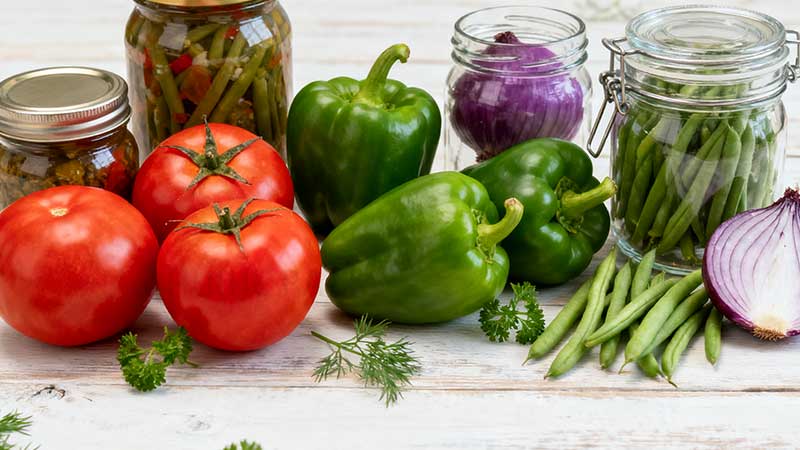
Cleaning Methods
Before starting the canning process, the first step is jar cleaning in hot water or a dishwasher. Rinse well to remove any unrinsed detergents and unnatural flavors. Rinse before drying the jars.
Avoid putting the jars on a cold surface and use a rack to avoid breaking. Check for cracks or chips on the jars.
Sterilization
Sterilize jars for products that will be processed within ten minutes.
- Place the empty jars upright on a rack inside a boiling water canner.
- Add hot water until it covers the jars by about one inch.
- Let the jars boil for 10 minutes, then carefully remove them and set them on a rack.
- Pack the jars with food, place the lids on top, and secure them with screw bands.
You don’t need to presterilize jars for food that will be canned with a pressure canner.
Choosing the Right Jar
Think about the type of recipe when choosing the ideal canning jar. Sauce, jams, jellies, and salsa would do better in standard mouth jars. Pressure canners require jars that can handle high heat. Regular canning jars can work well with boiling water canners.
You can also follow the manufacturer’s directions. Check if the manufacturer recommends the jars for canning or storage only. They also give advice on which lids and bands to use with their jars.
Inspecting Components
Check the lids, screw bands, and jar rims for cracks and other damage. A small crack can prevent the jar lid from sealing properly. Bent or rusted screw bands may not tighten correctly.
Buy new lids every time you want to can your foods, as the sealing compound inside the lid only works once. Ensure you also have the correct size jar for canning before starting the process.
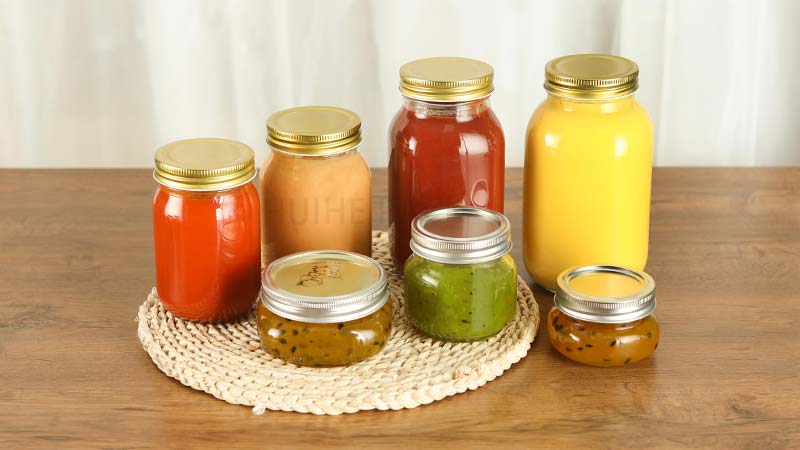
Lid Options
The most popular lid is the two-piece, self-sealing lid. It is a flat metal with a sealing liquid that melts and cools down.
An alternative is the one-piece lid, though not highly recommended, as it does not allow air to escape, leading to food spoilage.
Preventing Seal Failure
Using the wrong jar can lead to seal failure. If, for example, you use a larger jar than what the recipe recommends, the food might not process well, causing bacteria to survive. A smaller jar can cause the food product to overflow, preventing the lid from sealing properly. Hence, always use the recommended jar for the recipe.
Ensure to leave some space between the food and the botom of the lid. Most recipes will give you the exact headspace to leave. You can use a clean ruler or a headspace measurer for the correct canning jar measurements.
Storage and Organization
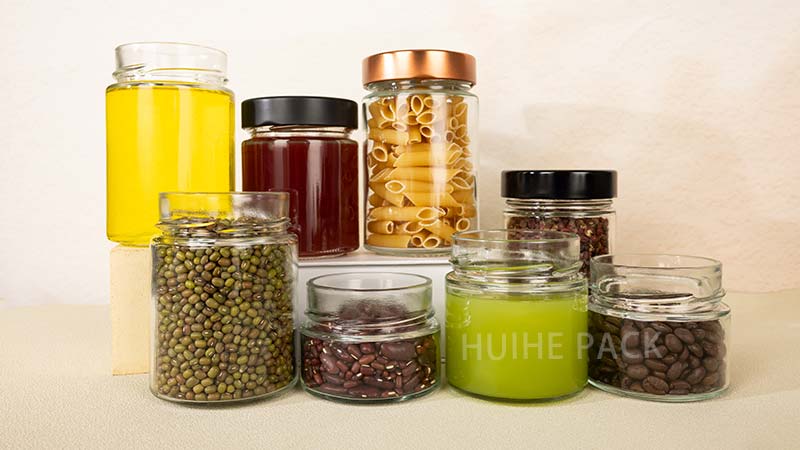
Proper Storage Conditions
After processing, store the food jars in a cool, dark, and dry area. Direct sunlight can cause the lid to heat and weaken the seal. The light causes the food inside to lose flavor, color, and nutrients.
Avoid storing the food jars in places with extreme temperature changes. Don’t store the food jars near stoves, ovens, or in garages during summer. Cold places that freeze are also not ideal, as the jars can crack and break when they thaw too fast.
Organizing Jars
Metal or wooden shelves will be strong enough to keep the heavy jars safe. The jars should stay upright and not lie on their side. Label the jars with the list of contents and the date canned. Ensure to use the older jars first.
Lid & Band Storage
After the jars cool down, remove the metal bands and store them in a cool, dry place to prevent rusting.
Avoid reusing the lids for canning and use new ones every time. Don’t leave the lids on empty jars to prevent rusting.
Maximizing Shelf Life
Ensure the seals are tight before storing the jars. Refrigerate and consume the jars that did not seal properly as soon as possible.
Use the correct canning processes to ensure that there is no air or bacteria in the jar. Store and consume the canned food products within one or two years.
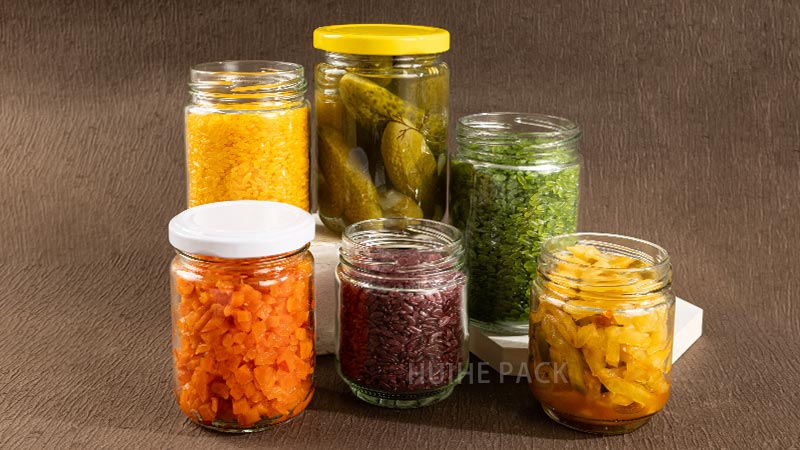
Safety Precautions
Not heating low-acid food properly can cause bacteria, which leads to foodborne disease. A boiling water canner cannot reach the temperatures needed to heat the low-acid foods.
Follow tested recipes and avoid using shortcuts. Skipping some steps, lowering the processing time, or using untested glass jars can lead to foodborne diseases. One of the dangerous diseases is botulism, caused by consuming underprocessed food products.
Always use oven mitts, thick towels, or a jar lifter when lifting a hot jar. Place the hot jars on a rack or a warm towel, instead of a cold surface, to prevent sudden temperature changes that can cause breakage. Give the jars enough space without bumping into each other.
Preserving with Canning Jars
Boiling water canning is an easier canning method, as you only need boiling water to seal the jars. Pickling is another popular method, where you only need to add vinegar and spices to fruits and vegetables before sealing.
Half-gallon jars are the perfect size to store kombucha, pickles, or fermenting vegetables. They have a wide space ideal for storing large batches of food. Wide-mouth jars are ideal for salad dressing storage, keeping them fresh and easy to carry.
Some people use jars for storing overnight oats or smoothies. Jars have clear glass, which makes food attractive, especially for parties or gifts.
Conclusion
Canning jars are strong (can withstand high heat), durable, affordable, and flexible. Choose the right jar, follow safe canning procedures, and store the jars upright for long-lasting results.
At HUIHE PACK, we provide high-quality jars and solutions designed to support experienced and new canners. Contact us and explore our wide range and find the perfect jars to keep your food fresh and safe.



